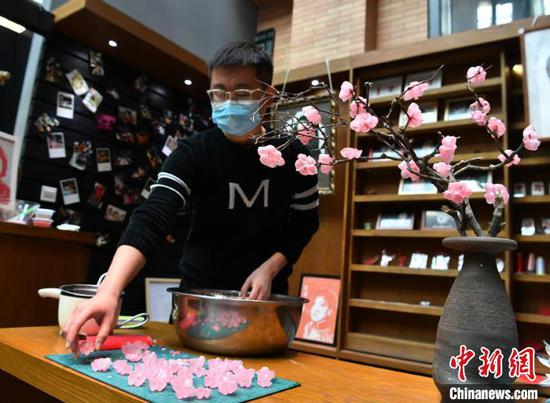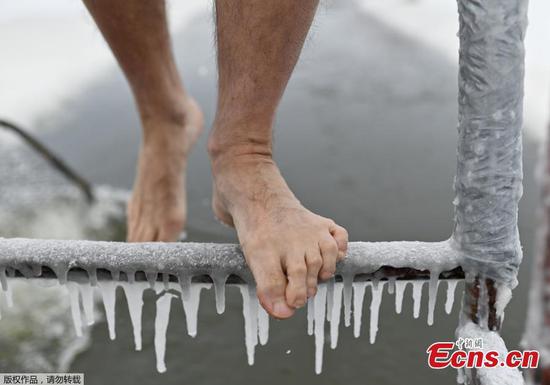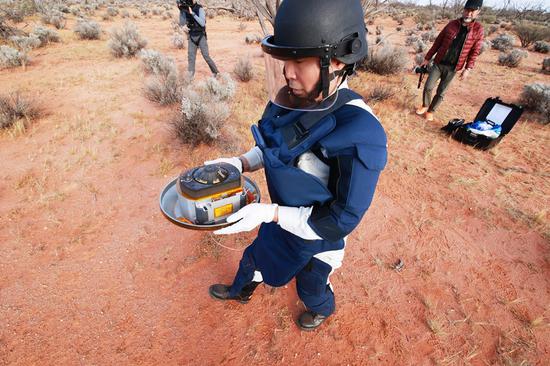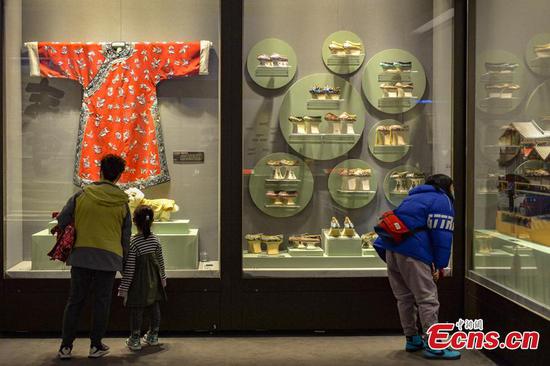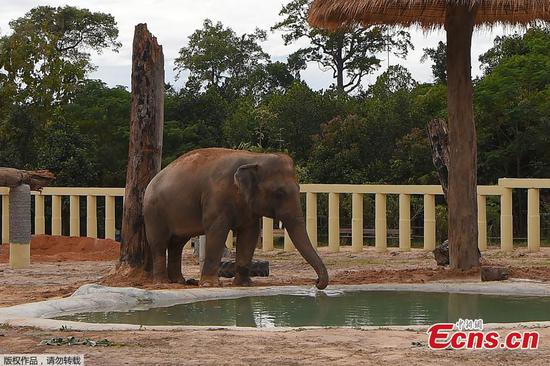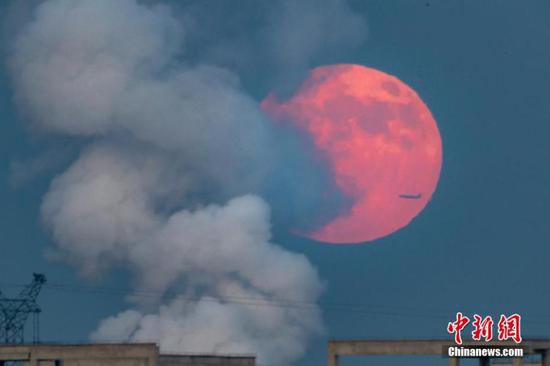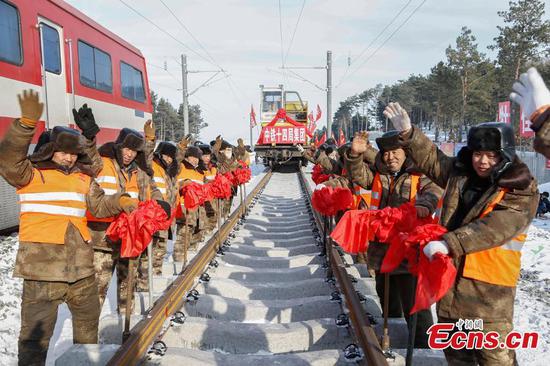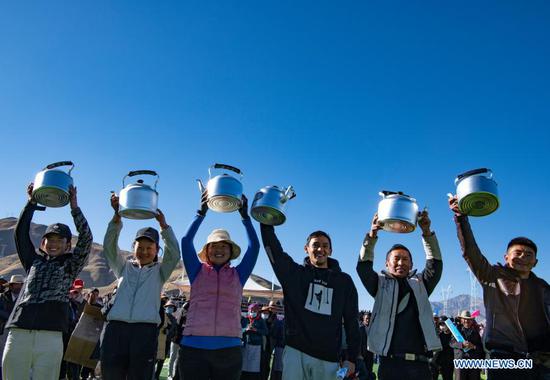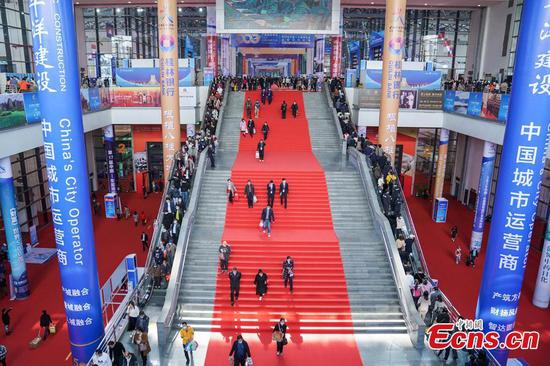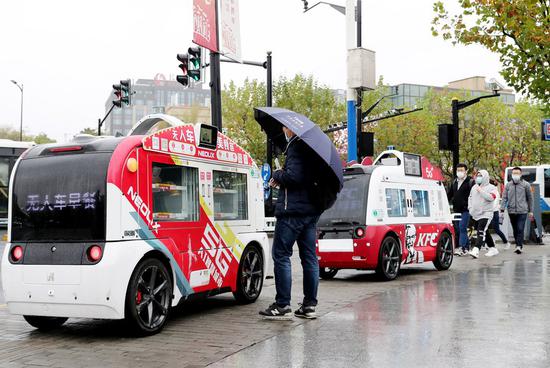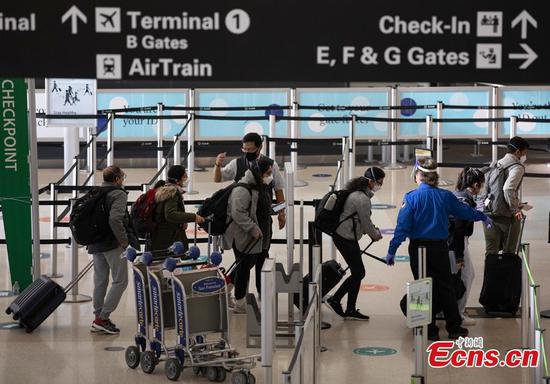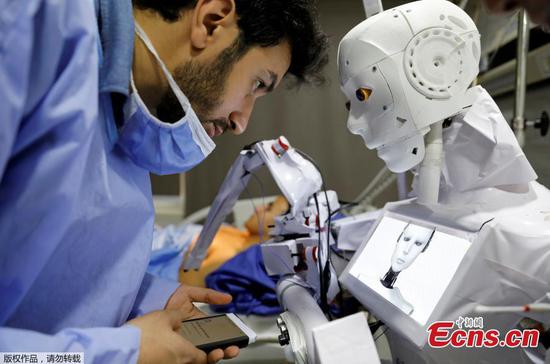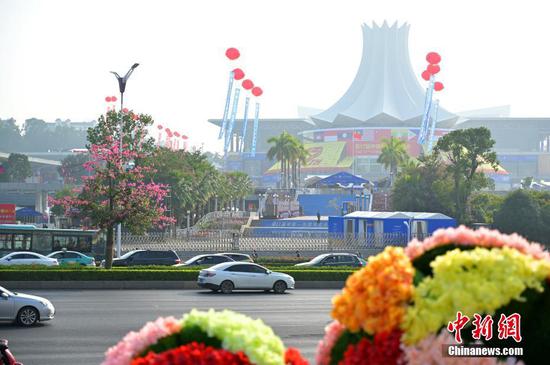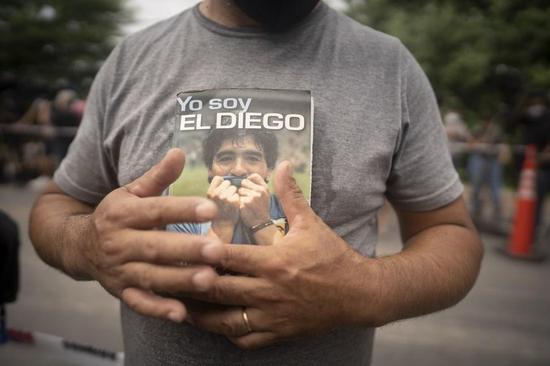A 90-year-old woman from Northern Ireland became the first person in the world to receive the Pfizer/BioNTech COVID-19 vaccine out of a trial as the United Kingdom's mass vaccination program began on Tuesday, but the promised imminent delivery of millions of doses of the Oxford University/AstraZeneca vaccine is going to be significantly reduced in size and initial batches will have to be imported, rather than made in the UK.
Margaret Keenan, who turns 91 next week, was given the jab at University Hospital, Coventry, and called it the "best early birthday present".
Around 800,000 doses should be given over the coming weeks, with over-80s and selected health and care staff at the front of the queue, and up to four million doses distributed by the end of the month.
"I feel so privileged to be the first person vaccinated," said Keenan. "It means I can finally look forward to spending time with my family and friends in the new year after being on my own for most of the year," she said.
"My advice to anyone offered the vaccine is to take it. If I can have it at 90, then you can have it too."
England's Chief Medical Officer Chris Whitty called it "a great day for medical science, and for the future".
Chaand Nagpaul, chair of the British Medical Association, told Sky News that the first vaccination was a "landmark moment" in combating this virus.
"But we need to be honest in that this is going to pose a huge logistical challenge for our health service," he added. "More public health advice needs to be put our because this really is fundamental to how you treat a viral pandemic… so there are quite a lot of challenges ahead."
The news about the other soon-to-be dispensed vaccine, however, is not so good.
Earlier this year, the government vaccine task force said it hoped that around 30 million doses of the Oxford vaccine would be made in the UK by the end of the year, and it was reported that they had suggested the packaging should carry the union fl ag. But now the reduced number of early doses will have to be imported from Germany and the Netherlands.
"There have been some (UK manufacturing) challenges," said Ian McCubbin, the task force's manufacturing lead, told a media briefing on Monday. "That's why there is a little delay in the delivery of the doses."
Specific details of the extent and timescale of vaccination programs have also been hard to clarify. Last month a National Health Service document leaked to the publication Health Service Journal said anyone in the country wanting the injection should have received it by the end of April, although it was suggested that this target was already out of date.
On Monday, Downing Street said the "majority" of vulnerable people would be vaccinated in the first two months of the new year, but declined to suggest a more precise figure.
The head of the UK vaccine taskforce Kate Bingham says vaccines could be used in a "mix and match" trial in the new year, to see how effectively they could work together.
"It's not being done because of supplies," she said about the process, known as a heterologous prime-boost. "It's to do with trying to trigger the immune response and the durability and nothing to do with what vaccines we've got."
You do a prime with one vaccine and then the second, whether it's 28 days or two months or whatever the agreed periods would be, would be with a different vaccine."
Deputy chair of the task force Clive Dix said recent advances meant the ground-breaking test could now be carried out.
"No-one's ever done it live and since we'll have safe vaccines available we should do that study, because then we have the ability to actually produce better immune responses," he said.
"There is a slight benefit to it, too, in that if prime and boosting either way around work, it may help with the deployment, because it might just be simpler to deploy that way round, but the main reason is to get a stronger immune response."
Scientists in the Netherlands are conducting experiments at the country's biggest soccer stadium which could result in large numbers of spectators being allowed back into sporting arenas and concert halls.
The experiment at the Johan Cruyff Arena in Amsterdam is to see how saliva-like droplets produced by cheering fans might spread the novel coronavirus in the air.
"We want to get a fundamental insight in the behavior of aerosols in a stadium filled with football supporters," said lead researcher Bert Blocken.
"By air cleaning technologies you can drastically reduce concentrations and make stadiums safe in terms of aerosol transmission of the virus."













